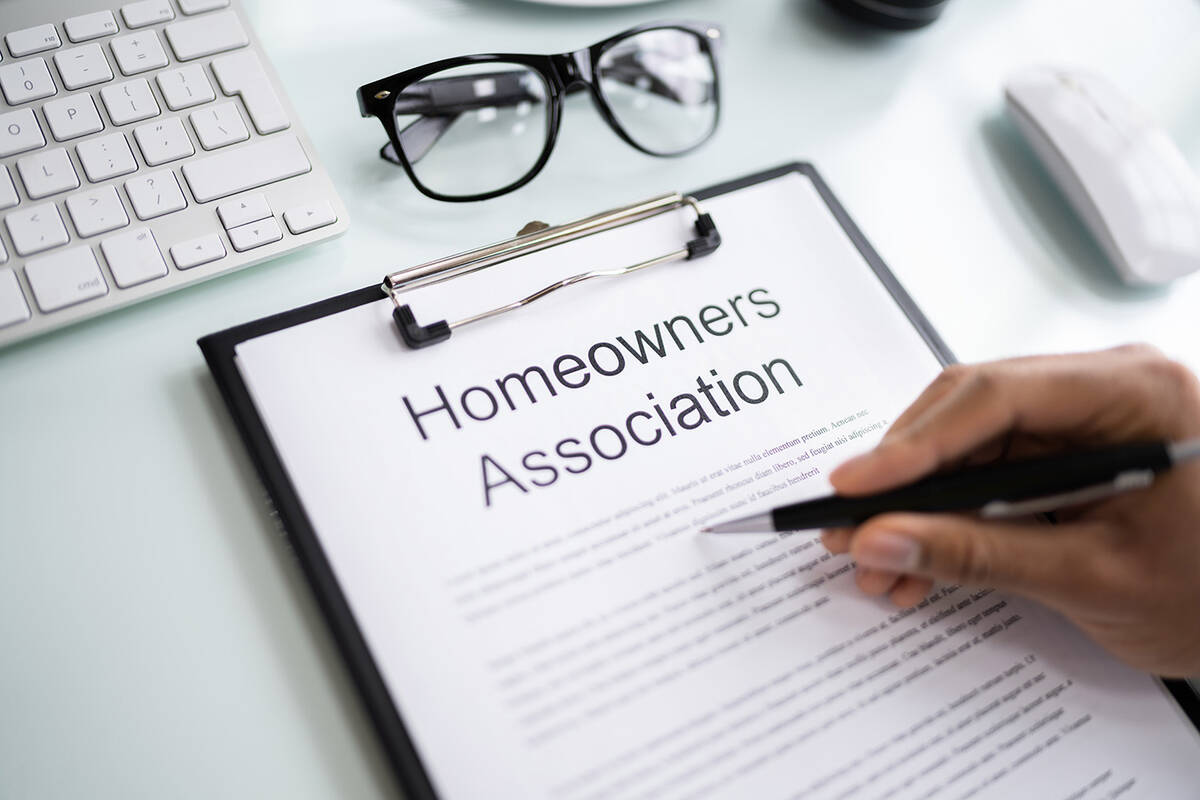NRED guidelines for deadlines for HOA boards
Note: This is the third column in a four-part series that will present various topics and deadlines that are required by the Nevada Real Estate Division. As managers and board members, please check your operating procedures to ensure that your policies and procedures are compliant. The following information is provided from the Nevada Real Estate Division with its permission.
Noncompliance notices
Collection policy: Nevada Revised Statutes 116.31151(4)-30
The board shall, at the same time and in the same manner that it makes the budget available, make available to each unit’s owner the policy established for the association concerning the collection of any fees, fines, assessments or costs imposed against the unit’s owner.
Towing: NRS 116.3102(1)(s) and NRS 487.038
The association may direct the removal of vehicles improperly parked on property owned or leased by the association, or improperly parked on any road, street, alley or other thoroughfare within the community in violation of the governing documents, but it must first post written notice in a conspicuous place on the vehicle or provide oral or written notice to the owner or operator of the vehicle. The 48-hour notice must be provided unless the vehicle is blocking a fire hydrant, fire lane or parking space designated for the handicapped or poses an imminent threat of causing a substantial adverse effect on the health, safety or welfare of the units’ owners or residents of the community.
Interruption of utilities: NRS 116.345(4) AND NRS 704
If an association decides to interrupt the utility service for the nonpayment of utility charges when due, it shall in every case, send a written notice of its intent to interrupt any utility service to the unit’s owner or tenant of the unit’s owner at least 10 days before interruption. Other applicable statutes and local ordinances may apply.
Fine schedule: NRS 116.31031(3)
If the association adopts a policy imposing fines for any violations of the governing documents of the association, the secretary or other officer specified in the bylaws shall prepare and cause to be hand-delivered or sent prepaid by U.S. mail to the mailing address of each unit or to any other mailing address designated in writing by the unit’s owner, a schedule of fines that may be imposed for those violations. The fine schedule should also be included in any resale packages.
Violation notice: NRS 116.31-31(4)
The board may not impose a fine unless the person against whom the fine will be imposed has been provided with written notice specifying in detail the alleged violation, the proposed action to cure the alleged violation, the amount of the fine, the date, time and location for a hearing on the alleged violation and a clear and detailed photograph when possible. A unit’s owner shall be deemed to have received written notice unless it is mailed to the address of the unit and if different to a mailing address specified by the unit’s owner.
Notice of delinquent assessment: NRS 116.31162(4)
The association must mail to the address on file for the unit’s owner or if authorized by the parties deliver by electronic transmission, which includes a schedule of the fee that may be charged if the unit owner fails to pay the past due obligation. The association must also include a proposed repayment plan, a notice of the right to contest the past due obligation at a hearing before the board and the procedures for requesting the hearing.
Barbara Holland, CPM, CMCA, AMS, is an author, educator and expert witness on real estate issues pertaining to management and brokerage. Questions may be sent to holland744o@gmail.com.

















